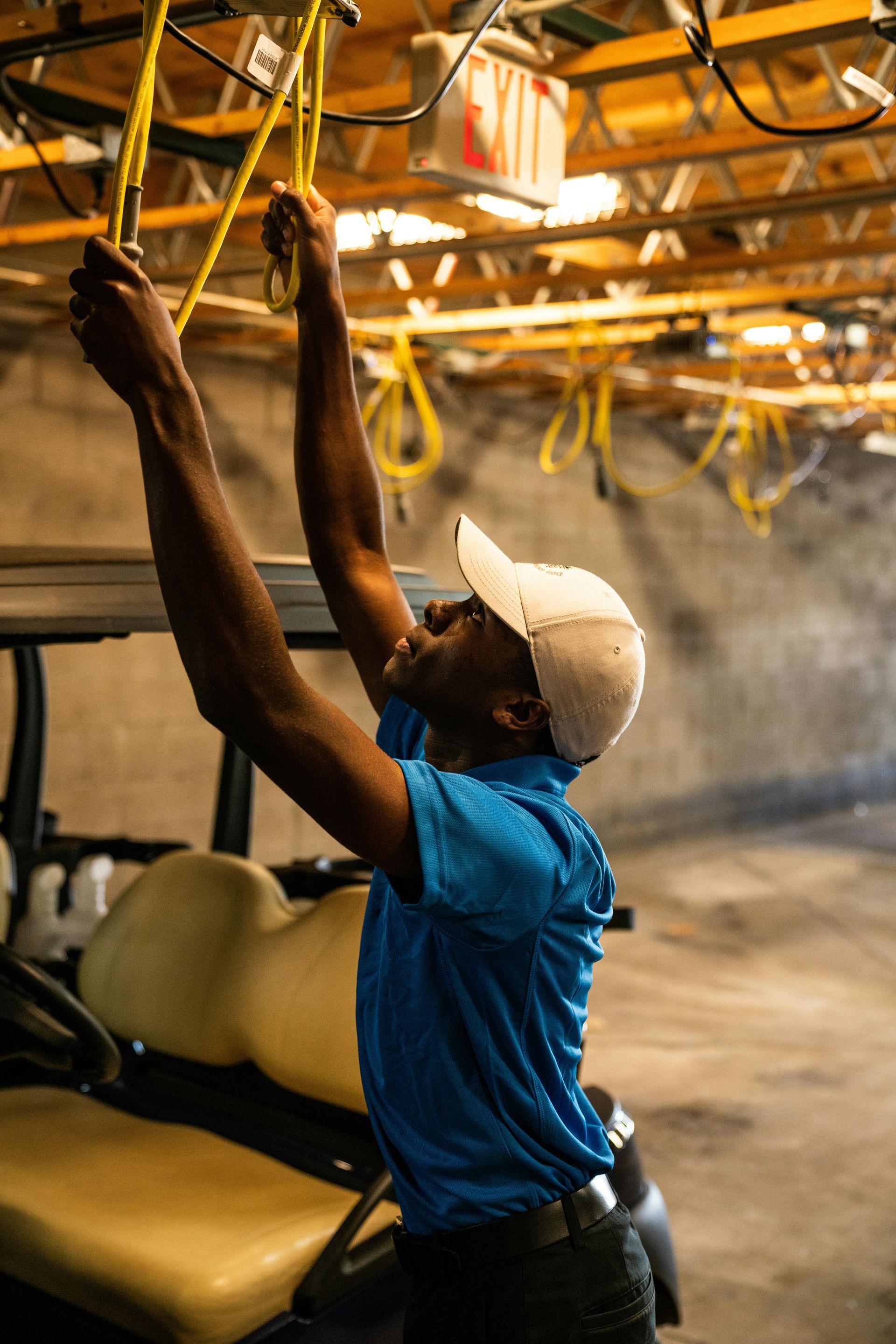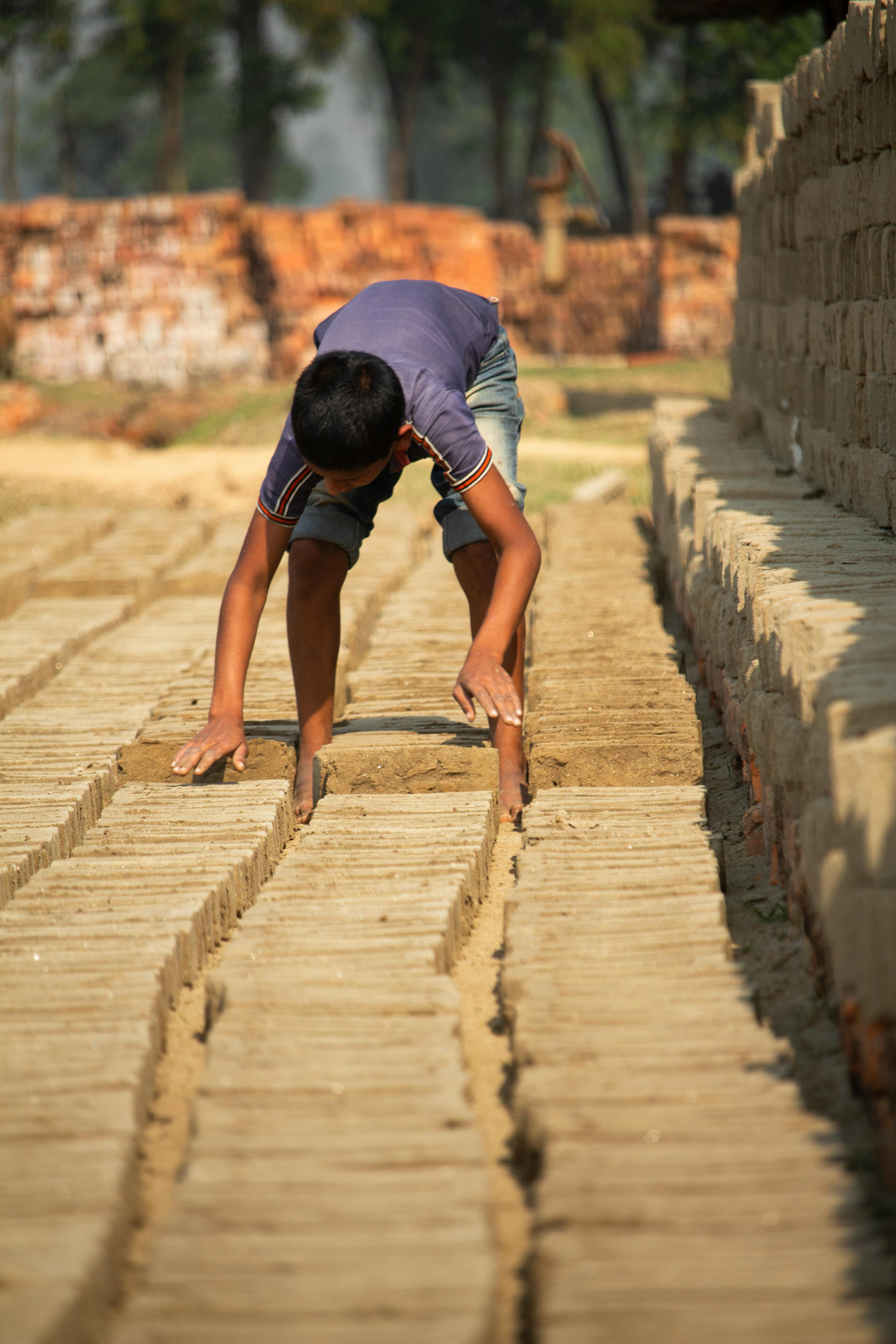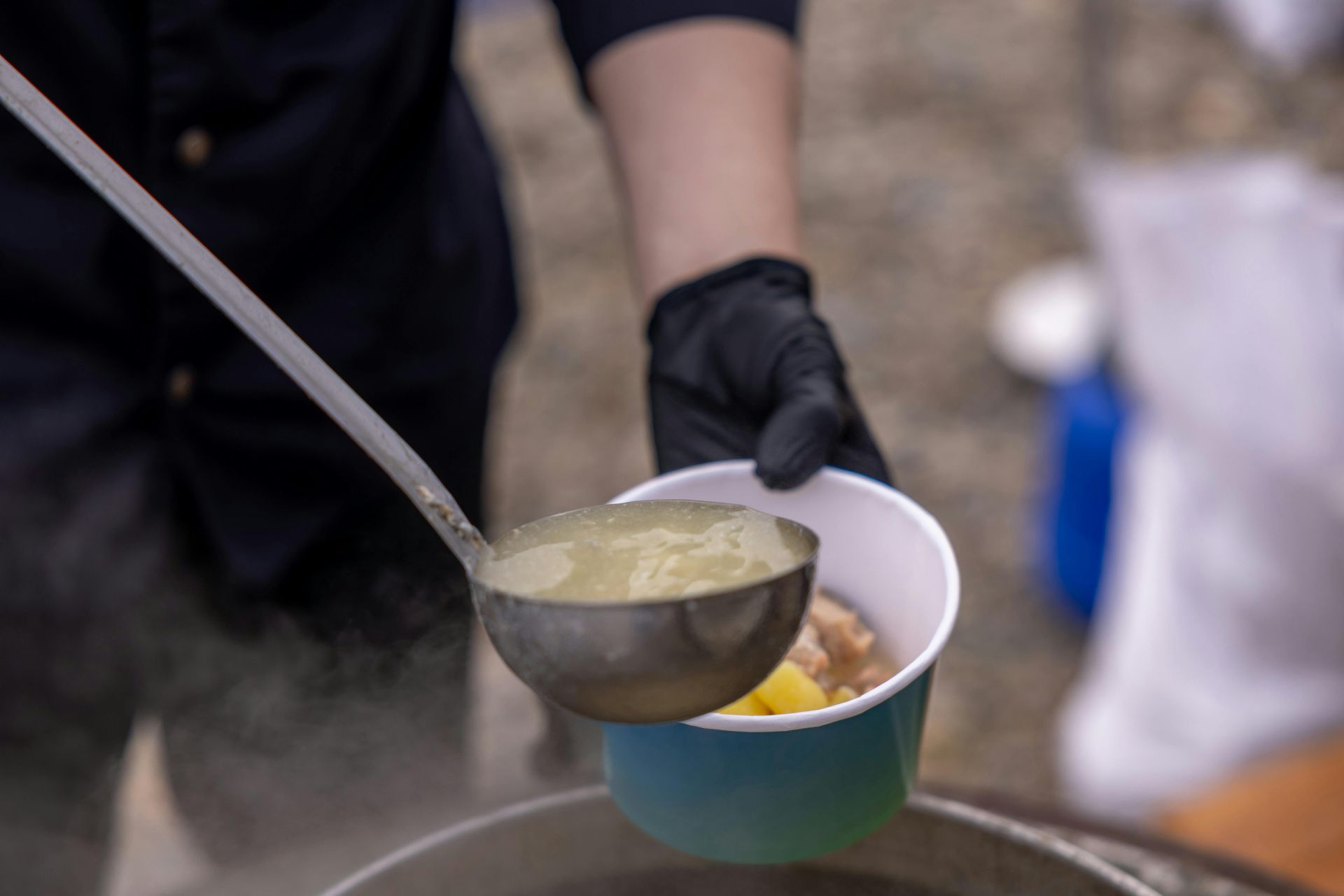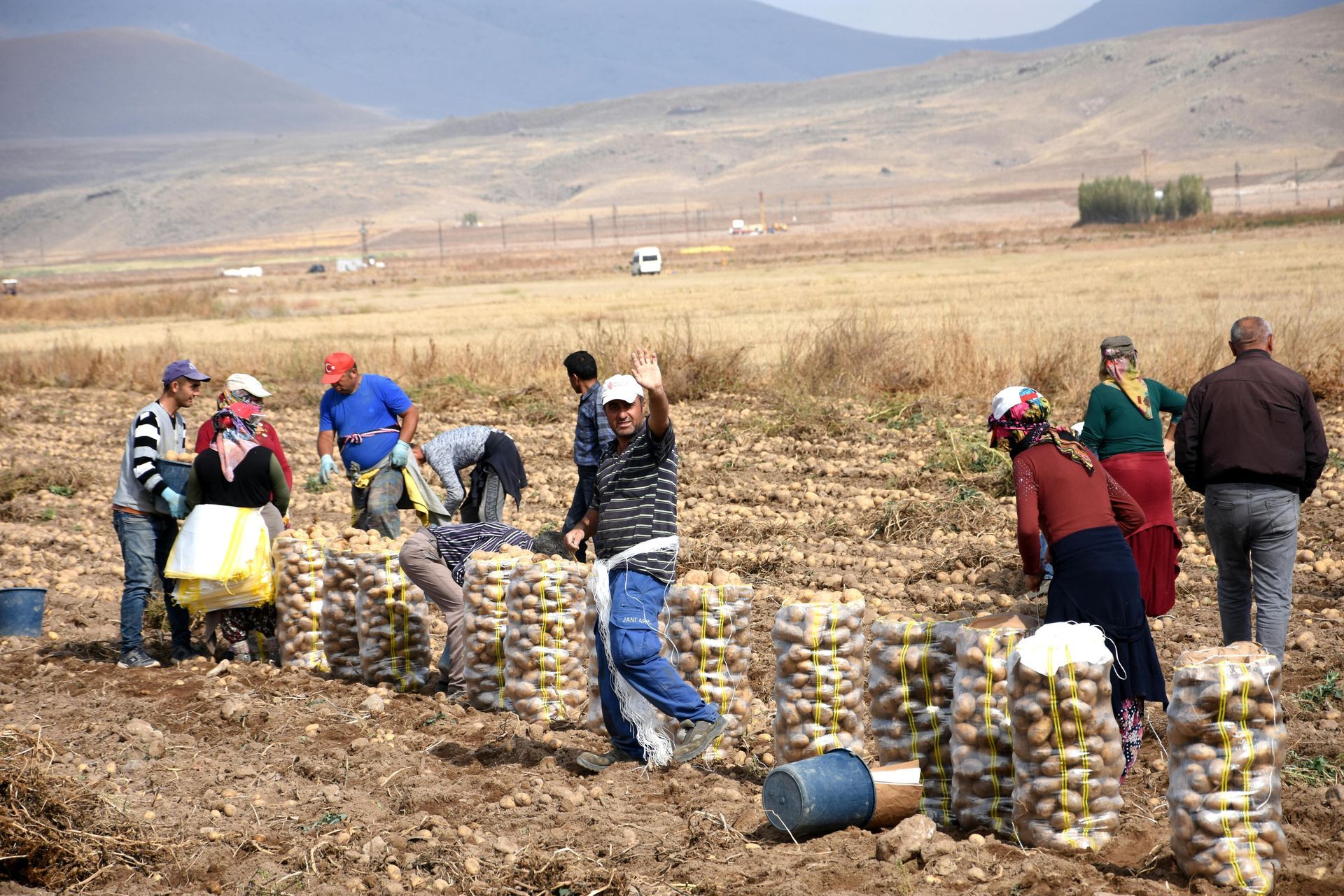Labor Trafficking In The US🦋
Labor trafficking in the US is the act of
forcing people to work through fraud, force, or coercion. Because of its severe impact on victims' lives, the Trafficking Victims Protection Act of 2000 was created to criminalize trafficking, protect workers, and prosecute traffickers.
This issue affects millions worldwide, with a shocking
24.9 million victims trapped in forced labor globally as of 2016, according to the International Labour Organization (ILO).
In this post, you will learn more about what causes this crisis and what you can do to help fight back.
Key Takeaways
- Labor trafficking exploits vulnerable people through force, fraud, or coercion. Industries like agriculture and domestic work are heavily affected in the U.S.
- Key red flags include withheld wages, unsafe living conditions, threats of deportation, and excessive working hours with little pay.
- Temporary work visas like H-2A and H-2B often lead to abuse by traffickers who trap workers through debt bondage or fraudulent promises.
- Laws like the Trafficking Victims Protection Act (TVPA) aim to protect victims and prosecute traffickers but face challenges with enforcement and survivor support gaps.
What is Labor Trafficking?

Labor trafficking is defined as the recruiting, harboring, transporting, or obtaining of individuals for labor through force, fraud, or coercion.
Victims often face inhumane conditions and may be
forced into debt bondage or involuntary servitude. The Trafficking Victims Protection Act (TVPA) defined this crime in 2000 to protect those who find themselves trapped in these situations.
Traffickers commonly
target undocumented workers, homeless youth, or individuals facing severe financial hardships. Many victims work in industries like agriculture and domestic services under dangerous conditions without access to their wages.
Agencies like the
Department of Labor is
making efforts to address these abuses within supply chains across both legal and illegal sectors.
Key Indicators of Labor Trafficking
Labor trafficking often hides in plain sight, making it crucial to recognize signs of exploitation. Signs of labor trafficking may involve controlling behaviors or unsafe working conditions that trap individuals in forced labor.
Common Red Flags
Labor trafficking cases often go unnoticed without knowledge of red flags. Michigan residents can help victims by recognizing these signs. Here are some red flags to look out for:
- Workers may show signs of physical abuse, such as bruises or injuries, which can indicate use of force.
- Victims are frequently denied control over their earned wages or documents like passports and visas.
- Individuals may live in poor housing conditions provided by their employers, often overcrowded or unsafe.
- People coerced into labor often work long hours with little to no pay under unfair terms.
- Farmworkers and domestic servants are commonly isolated, making them vulnerable to exploitation.
- Employers may threaten workers with deportation based on their immigration status to maintain control.
- Unaccompanied minors are at higher risk due to limited resources or social support systems.
- Some industries, including agriculture, food service, or domestic work, report more cases of labor exploitation than others.
- Fearful behavior around law enforcement agencies can signal coercion by traffickers.
Your attention in noticing these red flag patterns can make a real impact in combating modern slavery in Michigan communities.
Industries Most Affected
Many industries in the United States are deeply impacted by
forced labor. This exploitation often occurs in both legal and illegal industries. Below is a summary of the sectors most affected.
Agriculture
In the agriculture industry, workers can face coercion, withheld wages, and
unsafe conditions. The U.S. Department of Labor consistently identifies this sector for labor trafficking violations.
Domestic Work
Victims are often isolated in homes, denied fair pay, and
subjected to abuse. This includes housekeepers, nannies, and caregivers frequently hired under private arrangements.
Hospitality
Vulnerable individuals are forced to work in hotels, resorts, and cleaning services. Traffickers may control their wages or
threaten deportation when visas are tied to employment.
Construction
Trafficking and coercion is also common within the construction industry.
Victims work long hours under unsafe conditions. Many are recruited through fraudulent promises of employment.
Restaurants and Food Services
Undocumented workers
are the common victims in this industry. Workers are exploited with low wages, excessive hours, and intimidation.
Manufacturing
It's easy for factories and warehouses to force workers into grueling shifts without proper compensation. Victims are usually lured in through
fraudulent contracts.
Health and Beauty Services
Nail salons and massage parlors can also employ trafficked workers. Victims are often
exploited under threats
or debts they cannot repay.
Fisheries
Workers endure
harsh conditions on fishing vessels. Isolation at sea makes them vulnerable to exploitation and abuse.
Across these industries, traffickers are taking advantage of individuals suffering from economic hardships and vulnerable living situations. Exploitation can affect anyone, documented or undocumented workers alike.
Labor Trafficking and Temporary Work Visas
Traffickers exploit temporary work visa programs to control and abuse vulnerable foreign nationals. Victims frequently cannot leave due to fear of retaliation or deportation.
Labor traffickers target individuals with economic hardships, says the International Labor Organization.
Agriculture and domestic servitude are industries heavily affected by this issue. Workers on H-2A or H-2B visas commonly endure poor conditions under abusive employers.
Labor Trafficking in Domestic Work and Agriculture
Labor trafficking often targets
domestic workers and individuals in agricultural work.
The 2023 Trafficking in Persons Report shows that the United States still struggles with protecting labor trafficking victims fully, but you can help combat human trafficking by supporting the efforts led by organizations such as the Department of Justice and Human Services.
Challenges in Identifying and Combating Labor Trafficking
Identifying victims of labor trafficking can be difficult because traffickers often hide their actions. Combating labor trafficking also faces hurdles because of limited resources and coordination between federal law enforcement and state efforts.
For instance, survivors are sometimes
arrested for crimes they were forced to commit
while being trafficked, despite protections under acts like the Trafficking Victims Protection Act (TVPA).
Legal Framework and Protections
The United States enforces laws to combat labor trafficking and protect victims. These regulations aim to hold traffickers accountable while offering support to those affected.
The Trafficking Victims Protection Act (TVPA)
The Trafficking Victims Protection Act of 2000 (TVPA) defines labor trafficking as
forcing, defrauding, or coercing
individuals into work.
The TVPA is also responsible for combating horrible crimes like child labor trafficking and exploitation in agriculture. The U.S. Department of State reports ongoing efforts but also highlights some challenges, such as arresting victims for actions they were forced to commit.
Role of Law Enforcement and Government Agencies
The United States government enforces the
Trafficking Victims Protection Act (TVPA) of 2000, which defines forced labor crimes and provides protections.
Locally, task forces in Michigan are partnering with officials to
prosecute traffickers while rescuing victims from exploitation.
Agencies like the Department of Labor monitor industries such as agriculture where risk factors are high for undocumented workers. Officials also collaborate with resources like the National Human Trafficking Hotline and the NIJ to collect research and sensitive information on potential cases.
How to Support Victims of Labor Trafficking
You can make a significant difference by supporting victims of labor trafficking in the United States. Here are some ways to support:
- Donate to trusted organizations that fight human trafficking, like the National Human Trafficking Resource Center or Urban Institute.
- Support survivor-focused nonprofits in Michigan that assist individuals recovering from labor exploitation.
- Advocate for stronger enforcement of state laws against labor trafficking. Push local leaders to prioritize implementing protections under the Trafficking Victims Protection Act (TVPA).
- Share resources on social media to educate others about common red flags, such as wage theft or unsafe working conditions.
- Provide financial help for legal services assisting victims who were denied wages or wrongfully arrested due to their trafficked status, as highlighted in the 2023 TIP Report.
- Report suspicious activity anonymously through official government organizations like the Department of Labor hotline or local law enforcement agencies.
- Offer employment opportunities to survivors who often face challenges finding stable jobs after escaping exploitation.
- Collaborate with businesses committed to fair trade practices, ensuring supply chains are free from forced labor both locally and globally.
Resources for Reporting and Assistance
Labor trafficking affects victims across many industries in the United States. Michigan residents can help by reporting cases and supporting organizations focused on combating this issue.
- Contact the National Human Trafficking Hotline at 1-888-373-7888 or text “HELP” to 233733. This hotline operates 24/7 and offers confidential assistance.
- Report labor trafficking through the U.S. Department of Labor's Wage and Hour Division at 1-866-487-9243. Their agents investigate wage theft and forced labor cases.
- Support local anti-trafficking groups like Alternatives for Girls, which works to assist victims in Michigan. Donations help fund shelter and recovery programs for survivors of human trafficking.
- Notify federal law enforcement by submitting a tip through Homeland Security Investigations (HSI). Call HSI at 1-866-DHS-2ICE to report suspicious activities related to labor violations.
- Reach out to Northeastern University’s Institute on Race and Justice for research-based insights into labor trafficking patterns and prevention methods in the U.S.
- Help victims access legal services through organizations like Freedom Network USA. Your donations support their work under the Trafficking Victims Protection Act (TVPA).
- Partner with agencies like the Polaris Project, which focuses on systemic changes to prevent labor trafficking, or get involved in community policing.
Conclusion
Labor trafficking denies people their freedom and basic rights. You can help fight this issue by staying informed and
supporting survivors, reporting suspicious activities, or donating to organizations working on prevention.
Your actions can make a difference in ending this crime. Together, we can create safer communities for everyone.
FAQs
1. What is labor trafficking, and how does it differ from sex trafficking?
Labor trafficking involves forcing individuals to work under exploitative conditions for the purpose of subjection, often through threats or coercion. Sex trafficking specifically relates to trapping an individual into a commercial sex act, especially if they are under 18 years of age.
2. How does the U.S. government address labor trafficking?
The U.S. government enforces laws against labor and sex trafficking through agencies that investigate cases, prosecute offenders, and provide support services for victims.
3. Are individuals trafficked only from their home country?
No, while some victims may be brought from their home country into the United States, others can be exploited within U.S. borders without crossing international lines.
4. Where can I find additional resources on labor or sex trafficking?
You can access additional resources through trusted organizations specializing in anti-trafficking efforts or by consulting reports provided by the U.S. government on these issues.










